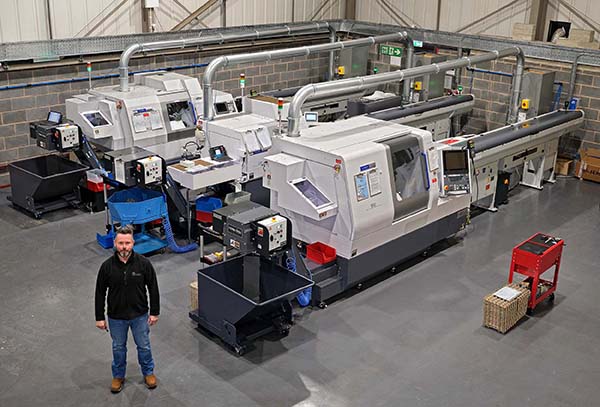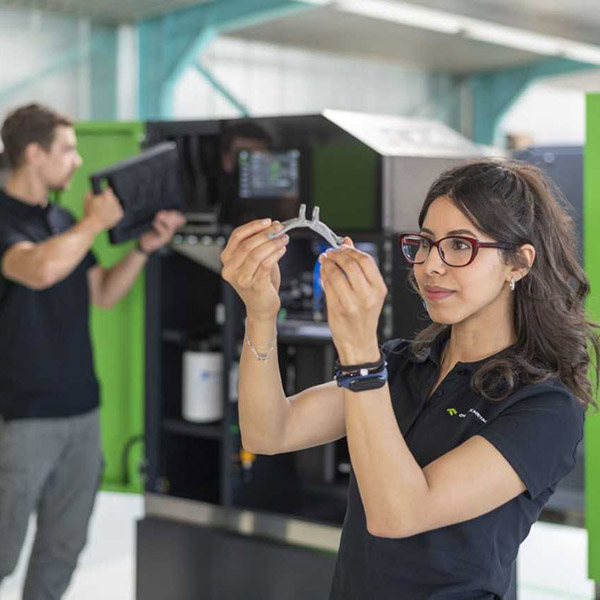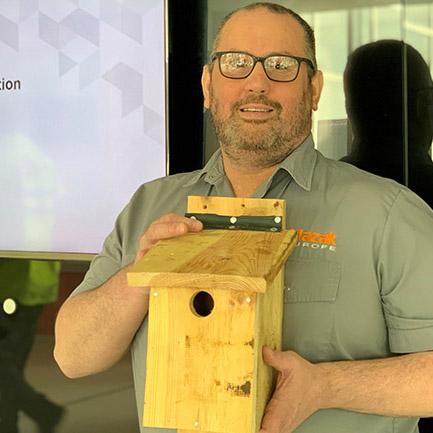
Based in Eastwood, near Nottingham, Trust Precision has become a leading Midlands provider of sliding-head turn-milled components. In 2011, managing director Nick Street acquired his first Citizen sliding-head machine, a Cincom M32-VIII model, which was fitted with a pneumatic guide bush that improves the machine’s ability to accept bar stock of variable quality and extends bar capacity from 32 to 35 mm diameter.
“With B-axis movement of one of the tool carriers and a total of nine cutters facing the sub-spindle, the machine was at the time more advanced than most other lathes on the market,” he says.
The machine proved ideal and there are now six similarly equipped models operating around the clock at the Eastwood facility, lights-out overnight. All are fitted with 130 bar high-pressure coolant and a 3.6-m bar magazine. The latest M32 addition, plus a 20 mm bar capacity Citizen L20-XII with programmable B axis and low-frequency vibration (LFV) chip-breaking software, arrived in January 2020.
Until the pandemic took hold in early 2020, aerospace contracts accounted for up to 60% of turnover, but the proportion is more like one-third of that now. New business from the medical industry offsets the current shortfall in commercial aerospace work due to Covid-19.
Fortuitously, the presence on the shop floor of the L20-XIILFV meant that its superior chip-breaking ability could provide more efficient turning of medical parts from stainless steel bar.
Street says: “LFV is a must if you are buying a Citizen lathe that offers this option. It’s a major technological advance, more so because it can be activated by the part program.”
For further information
www.citizenmachinery.co.uk























